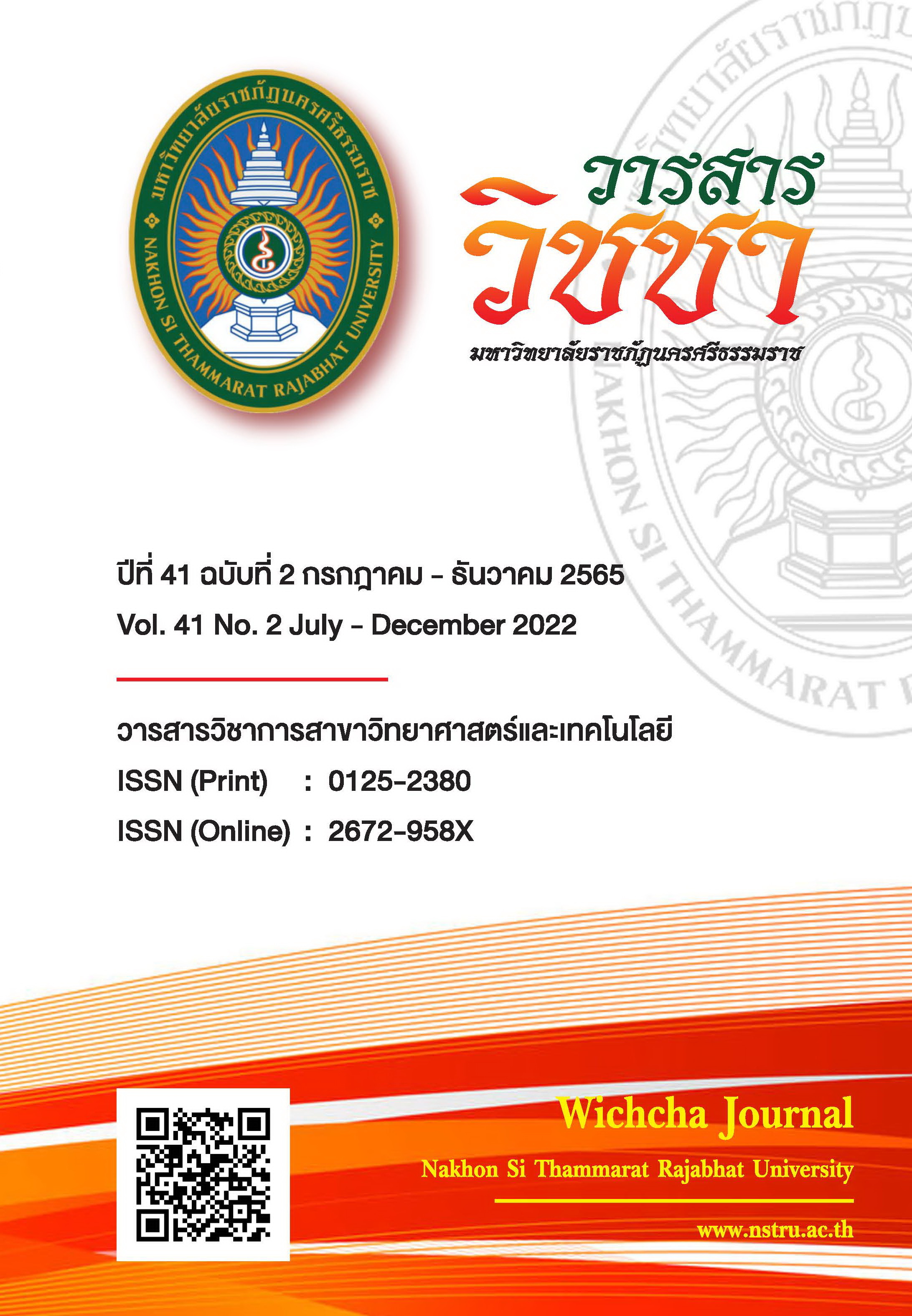A Study of the Importance Levels of Human Capital Components of Civil Engineers and Irrigation Engineers: The Case of the Royal Irrigation Department
Main Article Content
Abstract
“Human capital or HC” has become one of the organization’s most important assets today. This study refers to the concept of human capital that focuses on the development of “knowledge, skills and abilities”. Retention of human capital developed personnel is also important because personnel can apply their knowledge, skills and abilities to the operations of the organization. The objectives of this research are (1) to find the important levels of the HC components and factors affecting the retainment of civil and irrigation engineers of the Royal Irrigation Department, and (2) to analyze the factors differentiating the importance levels of the HC components and retainment of the engineers in different positions. Descriptive statistics were used to analyze the key components of HC and the factors affecting the development and retainment of engineers. One-way ANOVA was then used as the inferential statistics to analyze the key factors affecting the differences in the importance levels of key components of HC and the retainment of engineers in each job position. The sample group consisted of 264 Royal Irrigation Department engineers. The results showed that the sample group put the highest score on the following HC components: 1) basic engineering knowledge, 2) human skills, and 3) the ability to define and solve the problems using engineering knowledge.
Article Details

This work is licensed under a Creative Commons Attribution-NonCommercial-NoDerivatives 4.0 International License.
เนื้อหาและข้อมูลในบทความที่ลงตีพิมพ์ในวารสารวิชชา มหาวิทยาลัยราชภัฏนครศรีธรรมราช ถือเป็นข้อคิดเห็นและความรับผิดชอบของผู้เขียนบทความโดยตรง ซึ่งกองบรรณาธิการวารสารไม่จำเป็นต้องเห็นด้วยหรือร่วมรับผิดชอบใด ๆ
บทความ ข้อมูล เนื้อหา รูปภาพ ฯลฯ ที่ได้รับการตีพิมพ์ในวารสารวิชชา มหาวิทยาลัยราชภัฏนครศรีธรรมราช ถือเป็นลิขสิทธ์ของวารสารวิชชา มหาวิทยาลัยราชภัฏนครศรีธรรมราช หากบุคคลหรือหน่วยงานใดต้องการนำข้อมูลทั้งหมดหรือส่วนหนึ่งส่วนใดไปเผยแพร่ต่อหรือเพื่อการกระทำการใด ๆ จะต้องได้รับอนุญาตเป็นลายลักษณ์อักษรจากวารสารวิชชา มหาวิทยาลัยราชภัฏนครศรีธรรมราชก่อนเท่านั้น
The content and information in the article published in Wichcha journal Nakhon Si Thammarat Rajabhat University, It is the opinion and responsibility of the author of the article. The editorial journals do not need to agree. Or share any responsibility.
References
กรมชลประทาน. (2560). คู่มือการปฎิบัติงาน. กรุงเทพฯ: กรมชลประทาน.
ฉันทนา พินิจจันทร์. (2544). การใช้ทักษะที่จำเป็นในการให้บริการส่งเสริมสุขภาพของพยาบาล ในโรงพยาบาลสังกัดกระทรวงสาธารณสุข เขต 2. เชียงใหม่: มหาวิทยาลัยเชียงใหม่.
ทิพวรรณ หล่อสุวรรณรัตน์. (2548). องค์การแห่งการเรียนรู้ จากแนวคิดสู่การปฏิบัติ. กรุงเทพฯ: แชทโฟร์ พริ้นติ้ง.
ธำรงศักดิ์ คงคาสวัสดิ์. (2550). ทุนมนุษย์: การกำหนดตัวชี้วัดเพื่อพัฒนา. กรุงเทพฯ: สมาคมส่งเสริมเทคโนโลยี (ญี่ปุ่น-ไทย).
นพรัตน์ ศรีจำนงค์. (2547). ทักษะการบริหารงานของผู้บริหารโรงเรียน สังกัตสำนักงานเขต พื้นที่การศึกษาเลย เขต 1. เลย: มหาวิทยาลัยราชภัฏเลย.
ระเบียบคณะกรรมการสภาวิศวกร ว่าด้วยองค์ความรู้พื้นฐานทางวิทยาศาสตร์ องค์ความรู้พื้นฐานทางวิศวกรรม และองค์ความรู้เฉพาะทางวิศวกรรม ที่สภาวิศวกรจะให้การรับรองปริญญา ประกาศนียบัตร หรือวุฒิบัตรในการประกอบวิชาชีพวิศวกรรมควบคุม พ.ศ. 2562. (2562, 18 ตุลาคม). ราชกิจจานุเบกษา. เล่ม 136 ตอนพิเศษ 259. หน้า 1-4.
ราชบัณฑิตยสถาน. (2539). พจนานุกรมฉบับราชบัณฑิตยสถาน พ.ศ. 2539. กรุงเทพฯ: อักษรเจริญทัศน์.
ราชบัณฑิตยสถาน. (2546). พจนานุกรมฉบับราชบัณฑิตยสถาน. กรุงเทพฯ: นานมีบุ๊คส์พับลิเคชั่นส์.
ศิริชัย กาญจนวาสี. (2552). ทฤษฎีการทดสอบแบบดั้งเดิม. กรุงเทพฯ: โรงพิมพ์แห่งจุฬาลงกรณ์มหาวิทยาลัย.
สยามรัฐ. (2563). ปักหมุดงบปี 64 เพิ่มพื้นที่ชลประทาน หนุนประชาชนรับประโยชน์กว่า 2 ล้านครัวเรือน. สืบค้นเมื่อ 3 ตุลาคม 2564, จาก: https://siamrath.co.th/n/175737.
อลิศรา กฤษมานิต. (2546). ปัจจัยที่มีความสัมพันธ์กับการปฏิบัติต่อเด็กตามอนุสัญญาว่าด้วยสิทธิเด็กของครูสังกัดสำนักงานการประถมศึกษาจังหวัดชลบุรี. กรุงเทพฯ: มหาวิทยาลัยมหิดล.
Argyris, C. (1960). Understanding organizational behavior. Illinois: Dorsey Press.
Becker, G.S. (1964). Human capital: A theoretical and empirical analysis, with special reference to education. New York: National Bureau of Economic Research.
Cole, J.R. (2016). Toward a more perfect university. New York: Public Affairs.
Dixit, S., Pandey, A.K., Mandal, S.N. and Bansal, S. (2017). A study of enabling factors affecting construction productivity: Indian scenario. International Journal of Civil Engineering and Technology, 8(6), 741-758.
Drucker, P.F. (1999). Knowledge-worker productivity: The biggest challenge. California Management Review, 41, 79-94, doi: https://doi.org/10.2307/41165987.
Favi, C., Germani, M. and Marconi M. (2017). A 4M approach for a comprehensive analysis and improvement of manual assembly lines. Procedia Manufacturing, 11, 1510-1518, doi: https://doi.org/10.1016/j.promfg.2017.07.283.
Hendry, J. (2013). Management: A very short introduction. Oxford: Oxford University Press.
Hughes, R. and Thrope, D. (2014). A review of enabling factors in construction industry productivity in an Australian environment. Construction Innovation, 14(2), 210-228, doi: https://doi.org/10.1108/CI-03-2013-0016.
Katz, R. (1974). Skills of an effective administrator, Massachusetts: Harvard Business Review.
Machado, C. and Davim, J.P. (2014). Transfer and management of knowledge. New Jersey: John Wiley & Sons.
Makulsawatudom, A., Emsley, M. and Sinthawanarong, K. (2004). Critical factors influencing construction productivity in Thailand. The Journal of King Mongkut's University of Technology Thonburi, 14(3), 1-6.
Maslow, A.H. (1943). A theory of human motivation. Psychological Review, 50(4), 370-396, doi: https://doi.org/10.1037/h0054346.
Mitcham, C. (1998). The importance of philosophy to engineering. Journal of Philosophy, 17(3), 27-47.
Nguyen, D.N., Yoshinari, Y. and Shigeji. M. (2005). University education and employment in Japan students’ perceptions on employment attributes and implications for university education. Quality Assurance in Education, 13(3), 202-218, doi: https://doi.org/10.1108/09684880510607945.
Odusami, K.T. (2002). Perceptions of construction professionals concerning important skills of effective project leaders. Journal of Management in Engineering, 18(2), 61-67, doi: https://doi.org/10.1061/(ASCE)0742-597X(2002)18:2(61).
Schultz, T.W. (1961). Investment in human capital. American Economic Review, 51(1), 1-17.
Schultz, T.W. (1975). The value of the ability to deal with disequilibrium. Journal of Economic Literature, 13(3), 827-846.
Soekiman, A., Pribadi, K.S., Soemardi, B.W. and Wirahadikusumah, R.D. (2011). Factors relating to labor productivity affecting the project schedule performance in Indonesia. Procedia Engineering, 14, 865-873, doi: https://doi.org/10.1016/j.proeng.2011.07.110.
Tilley, P. and Mcfallan, S. (2000). Design and documentation quality survey. Melbourne: CSIRO Building, Construction and Engineering.
Yamane, T. (1967). Statistics: An introductory analysis. (2nd ed). New York: Harper and Row Publishing.
Zaharim, A., Mohamed, A., Yusoff, Y.M. and Muhamad, N. (2009). Engineering employability skills required by employers in Asia. In proceedings of the 6th WSEAS International Conference on Engineering Education, pp. 195-201. Wisconsin: World Scientific and Engineering Academy and Society (WSEAS).


